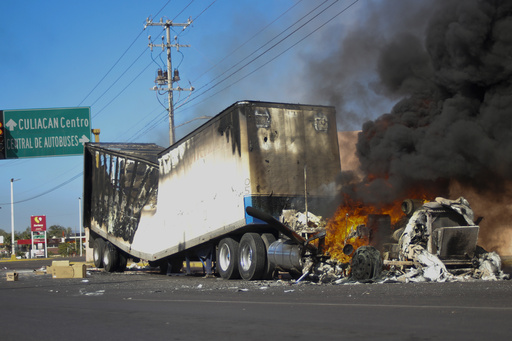
Canada is officially recognizing seven criminal organizations from Latin America as terrorist entities as part of its effort to combat fentanyl trafficking, Public Safety Minister David McGuinty announced on Thursday. This designation is aligned with the Canadian government’s strategy to enhance law enforcement powers in dealing with the ongoing crisis related to it. The groups included on this list are the Sinaloa Cartel, Jalisco New Generation Cartel, and La Nueva Familia Michoacana, all from Mexico. This declaration follows closely on the heels of a similar designation made by the U.S. government for eight organized crime groups from the region as “foreign terrorist organizations.”
In his remarks during a press briefing, McGuinty emphasized that these measures would be instrumental in preventing fentanyl from entering Canada and making its way into the United States. This announcement appears to be a direct response to prior statements made by the U.S. President about the connections between fentanyl drug flow, illegal immigration, and potential tariffs on Canadian goods, which are currently on hold until at least early March.
Recent statistics from U.S. border patrol suggest that a minimal amount—less than 1%—of seized fentanyl comes from Canada’s northern border. However, Canadian authorities have shown a commitment to advancing efforts against the lethal synthetic opioid’s spread. In addition to the three Mexican organizations mentioned, the list of designated terrorist groups includes Cartel del Golfo, Carteles Unidos, Venezuela’s Tren de Aragua, and the transnational gang MS-13, originally formed in California but now established as a significant criminal force in El Salvador.
The implication of this classification is significant; it essentially freezes the assets and resources of these organizations within Canada. “Financial institutions will be mandated to freeze the assets of these listed entities, leading to potential seizures or forfeitures,” McGuinty stated. Additionally, participating in activities related to these groups will be considered a criminal offense.
The process for adding an organization to the terrorist list involves thorough evaluations based on intelligence reports that identify whether a group has engaged in terrorist activities. According to McGuinty, the legal threshold for such listings is stringent, requiring detailed justification for a recommendation to be made to the federal cabinet.
Royal Canadian Mounted Police (RCMP) Commissioner Mike Duheme disclosed that there is credible intelligence suggesting the presence of crime cartels operating within Canada. “There’s also substantial evidence indicating that some Canadians have relocated to Mexico and South America to facilitate the movement of illicit commodities into our country,” Duheme explained.
In a further attempt to combat drug trafficking, Canada has appointed Kevin Brosseau, a former RCMP officer and national security advisor, as the nation’s fentanyl czar, tasked with overseeing efforts to prevent drug entry into the United States. Additionally, the Canadian government is investing significantly in border security measures, allocating $1.3 billion Canadian dollars (approximately $910 million USD) for improved security through new technology, personnel, and aircraft.

